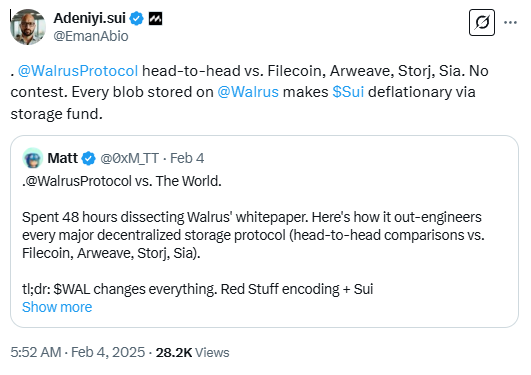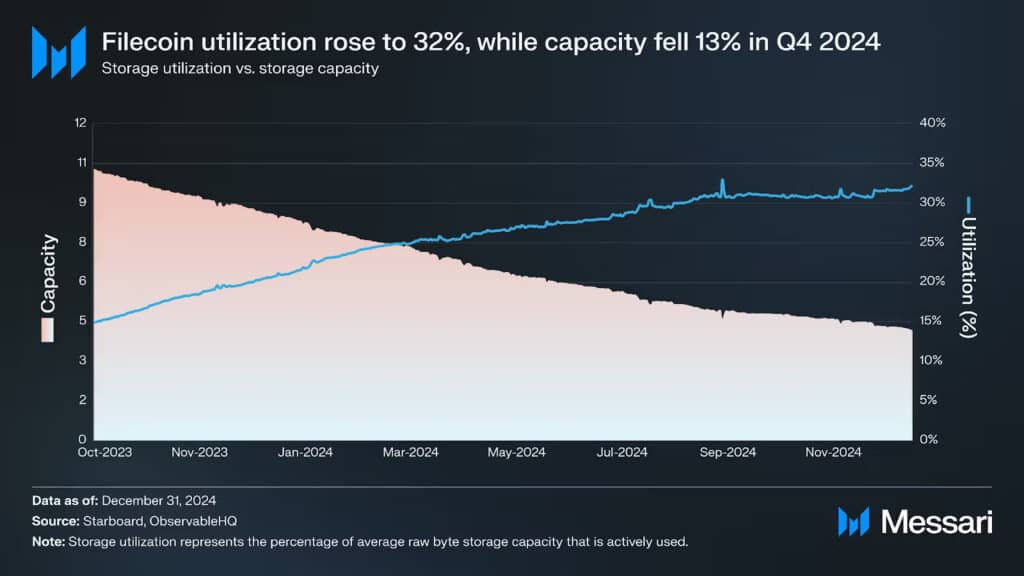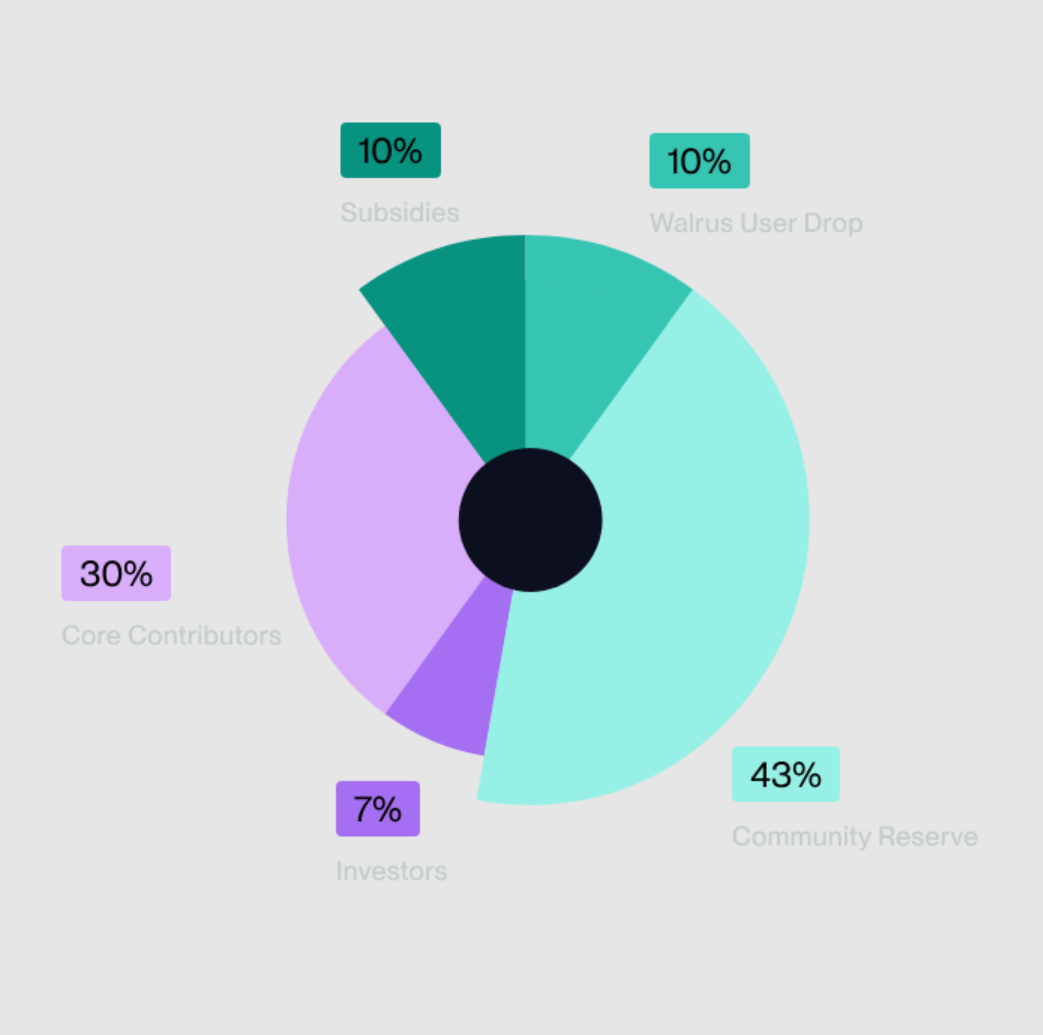Author: Frank, PANews
The decentralized storage protocol Walrus recently completed a $140 million financing round, led by Standard Crypto, with participation from a16z crypto and Electric Capital, making it the highest-funded on-chain project in recent times.
As a long-standing narrative, decentralized storage has sparked industry discussions by securing such a significant financing in the current market environment. From Walrus's perspective, it is not only attempting to reshape the decentralized storage track through a hundredfold cost reduction but also a new layout by Mysten Labs to upgrade Sui's performance and optimize token economics.
Walrus May Reduce Decentralized Storage Costs by 100 Times
According to official information, Walrus is a decentralized storage and data availability protocol aimed at providing secure and efficient storage solutions for large files and unstructured data. Developed by Sui's development team Mysten Labs and built on the Sui blockchain, its goal is to revolutionize data management in decentralized networks.
From a technical perspective, Walrus's core technology is erasure coding, which divides data into smaller slivers and distributes them across multiple storage nodes. This method can recover data even when up to two-thirds of the nodes fail, ensuring high availability and reliability.
The more important practical significance of this innovation may be in terms of cost. By leveraging erasure coding technology, Walrus's replication factor is reduced to 4-5 times, significantly lowering storage costs, approaching the efficiency of centralized cloud services. In comparison, Filecoin's replication factor is about 25 times, while Arweave's is as high as 100-1000 times. By this calculation, Walrus's storage costs could be 80-100 times lower than Filecoin and Arweave. Additionally, due to file fragmentation limitations, Walrus is also suitable for applications requiring large-volume data, such as AI datasets and media files.
According to SuperEx's estimation, for 1TB of data, Arweave's annual storage cost is around $3,500, Filecoin's cost ranges from $200 to $1,000, while Walrus only needs $50.

As of March 23, Walrus's testnet has stored approximately 80TB of data, with over 13.45 million total addresses. Additionally, 109 projects are running on the testnet, many of which are Walrus's native projects. Project types are mainly small games, and it has already attracted cooperation from well-known institutions like Tusky, Decrypt Media, and Chainbase.
Sui Ecosystem's "Turbocharger": 1EB Storage Target = 15% SUI Token Burn
Of course, in today's market environment, technical innovation narratives alone seem unlikely to gain high capital recognition. For Walrus, another reason for securing such substantial financing might be its origin from Mysten Labs. As the development team of the Sui network, Mysten Labs completed a $336 million financing before Sui's launch. The lead investor of this Walrus round, Standard Crypto, as well as a16z crypto and Electric Capital, were also among Sui's investors.
In Walrus's launch statement, it can be seen that Walrus originated from the need to upgrade Sui network's storage issues. After Walrus's launch, it will alleviate Sui network's storage pressure by providing efficient decentralized storage solutions.
Moreover, according to SuperEx's report, each blob stored on Walrus requires creating metadata objects on Sui, consuming SUI tokens as gas fees. If Walrus usage increases to 1EB (exabyte), it is estimated to consume around 240 million SUI annually (approximately 15% of current circulation), indirectly affecting network economics. In the fourth quarter of 2024, Filecoin's total storage capacity was about 4.2EB.

Mysten Labs also announced the acquisition of Web3 game infrastructure startup Parasol in March. Combined with Walrus's performance improvements, the Sui network may focus on AI and gaming directions next.
This massive capital influx seems to remind the market that decentralized storage remains a promising market. According to a December 2024 report by Codex.Storage, the decentralized storage market is expected to see further expansion in 2025 with AI expansion and more enterprises adopting hybrid cloud approaches.
Airdropped $80 Million Worth of Non-Fungible Tokens
The substantial financing has led the market to believe Walrus could become another major airdrop provider. WAL is Walrus's native token, with a maximum supply of 5 billion and an initial circulating supply of 1.25 billion. Walrus's official announcement indicates that over 60% of WAL will be used for the community. However, a careful study reveals that this doesn't mean a high initial airdrop proportion. According to the introduction, 10% of tokens will be used for user airdrops, with 4% distributed before mainnet launch and 6% to be distributed after mainnet launch. Additionally, 43% of tokens are for community reserve funds, managed by the Walrus Foundation to support long-term ecosystem development, including community grants, developer support, core research, incentive programs, community activities, hackathons, and other ecosystem projects. The mainnet is expected to launch on March 27.
Investors receive 7% of the shares, to be unlocked 12 months after mainnet launch. Based on the $140 million financing corresponding to 7% token share, investors' WAL cost is approximately $0.4 per token. WAL's valuation has reached $2 billion, compared to Filecoin's current fully diluted market cap of around $6 billion.
Currently, the 4% of tokens before mainnet launch have been distributed as Non-Fungible Tokens to testnet participants, with the remaining 6% airdrop allocation to be distributed through community incentives and ecosystem participation after launch.

As the Web3 world continues to explore the ultimate form of storage, Walrus has carved a new path with its "erasure coding + low replication factor" technical combination. This is not just a storage cost revolution but a paradigm breakthrough for the Sui ecosystem—by transforming storage consumption into SUI token economic engines, Walrus is weaving a multidimensional value network covering data storage, on-chain interactions, and AI training.
With the advancement of the 1EB storage target, this behemoth consuming 15% of circulating tokens may become the best driver of Sui's public chain growth. In 2025, with AI data demand exploding, can Walrus's hundredfold cost advantage leverage the trillion-dollar cloud storage market? The answer may lie in the storage curve at mainnet launch.







